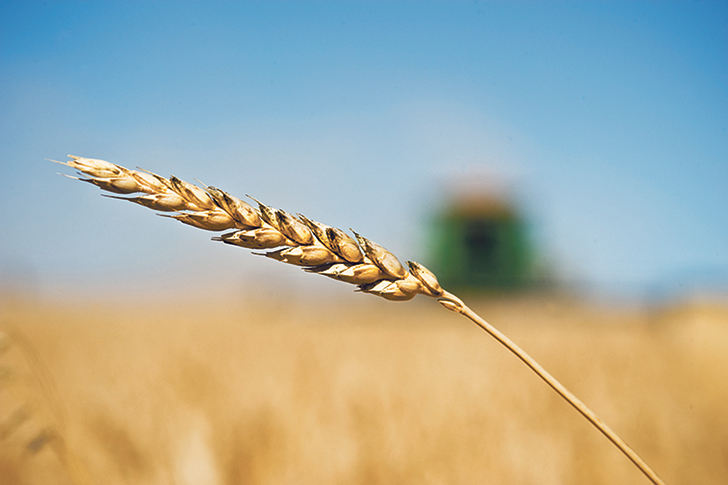The steady stream of Canadian cabinet ministers flowing south to the United States shows no signs of slowing.
Agriculture Minister Lawrence MacAulay is the latest to make the journey with a trip to Oregon and Idaho, which included stops in Portland, Sun Valley and Boise.
The latest trip is meant to highlight how important trade between the two countries is to their respective agricultural sectors, officials at Agriculture Canada told reporters. MacAulay is also scheduled to make the keynote address at the Pacific Northwest Economic Region Summit and the Western Association of State Departments of Agriculture annual meeting.
Read Also

Proactive approach best bet with looming catastrophes
The Pan-Canadian Action Plan on African swine fever has been developed to avoid the worst case scenario — a total loss ofmarket access.
The interconnectedness of Canada-U.S. agriculture is well-known within the sector. It’s a $47 billion relationship with Canada the top agricultural export destination for 29 U.S. states.
The average Canadian consumes $629 worth of American agricultural and food products compared the $69 Americans spend on Canadian goods, Agriculture Canada data shows.
Our long winters and short growing seasons mean we’re a key destination for U.S. fruit, vegetable and nut exports, as well as processed goods, beef, pork and beverages.
“Don’t mess with our current access” was the main message U.S farm groups sent to Washington during their consultations over the North American Free Trade Agreement negotiations, which are slated to start soon.
It’s a plea that’s been echoed north of the border.
American trade officials have promised to maintain current duty-free and tariff-free access, one of several priorities outlined in the U.S trade department’s list of priorities for the upcoming renegotiation of NAFTA.
Under American trade rules, officials are required to release a list of priorities to Congress before formal talks can begin. Canadian negotiators are not required to do the same.
The first round of NAFTA talks has been scheduled for Aug. 16 in Washington with Canada, Mexico and the U.S. all reportedly eager to finish negotiations before the Mexican presidential election in 2018. Seven rounds are planned, with meetings scheduled every three weeks.
Whether that timeline is achievable remains anyone’s guess. Trade negotiations have an uncanny ability to go sideways.
Then there’s the ongoing bureaucratic vacancies south of the border. U.S. President Donald Trump’s pick for chief agricultural negotiator Gregg Doud still hasn’t been confirmed by the Senate — a delay Canada’s own chief agricultural negotiator Frédéric Seppey recently highlighted in trade updates to Canada’s agriculture ministers and industry.
No stranger to agriculture, Doud is currently the president of the Commodity Markets Council, a position he’s held since 2013. He currently lives on a horse farm in Maryland and has worked for the National Cattlemen’s Beef Association as well as the U.S. Wheat Associates.
Washington has flagged improved American access to Canada’s wheat market as a trade priority. Canada’s wine and dairy sectors have also been tagged.
Ottawa has remained tight-lipped on its NAFTA hopes to the dismay of opposition groups. Conservative and NDP MPs on the House of Commons trade committee have triggered a special summer meeting ahead of the NAFTA talks to try and figure out what the Liberals hope to achieve.
Foreign Affairs Minister Chrystia Freeland has agreed to appear in front of the committee Aug. 14, two days before the formal Washington talks are expected to start. She will be accompanied by unnamed Canadian trade officials. The meeting will last two hours.
Opposition parties had requested Finance Minister Bill Morneau, International Trade Minister François Philippe Champagne, Prime Minister Justin Trudeau and NAFTA chief negotiator Steve Verheul also to appear before committee. The Liberals rejected those requests.
In the meantime, expect that cabinet ministers to continue visiting as many influential American policy makers as they can.

















